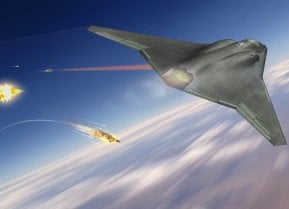North Korea Joins Russia in Ukraine Conflict: A Dangerous Alliance?
North Korea’s pivot toward Russia marks a strategic alignment with Moscow amid shifting global alliances and increasing friction with the U.S. This shift gained traction after the U.S. withdrawal from Afghanistan, and further solidified as Pyongyang supported Russia’s actions in Ukraine. The alliance provides mutual military and economic benefits, with North Korean troops reportedly deployed in Ukraine, enhancing their bilateral influence.
North Korea and the Eurasian Alliance: The shift in focus from North Korea towards Moscow is due to two parallel reasons connected to the morphing world geopolitical scene. The beginning of the shift was visible in the change in emphasis of the 'Foreign Ministry Website' in Pyongyang. Previously a parroting of the official line on supporting China, it was in the wake of the U.S. withdrawal from Afghanistan, which marked the evolution into a far broader foreign affairs commentary. The “collapse of American style world” marked what Kim Jong Un termed a shift to a neo-Cold War.
This came on the heels of the collapse of the U.S.-North Korea Hanoi summit in 2019. Whilst for the previous few decades Pyongyang had leveraged the nuclear deals for economic benefits and security, Afghanistan signaled a reboot of foreign policy. Nonalignment with China and Russia was jettisoned.
North Korea had thrown its chips in with the new multi-polar reality, this was a swivel to Russia and the specter of the multi-polar world. The practical upshot was North Korea's five-year nuclear defense plan which saw a move to greater self-reliance away from strategic deals with Washington.
The second reason for the North Korean realignment was the war in the Ukraine. Pyongyang quickly supported the war and recognized the two annexed regions. The new entente cordiale is both strategic, as in the geopolitical bipolar orientation, and transactional, as regards the mutual benefits occurring to both Moscow and Pyongyang.
Putin, Kim Jong Un, and Xi Jinping have unified in a desire to counterbalance U.S. dominion in the political economy. Everywhere U.S. hegemony appears to be under threat. From the Ukraine to Israel, putting out fires was the traditional U.S. endgame. The wild card, of course, is the U.S. Election. A win for Trump could see the U.S. accepting the new polarity and embarking on a foreign policy shift to non-interference. The Nomos of the Earth (1950) as Carl Schmitt predicted in his influential book, sees the world dividing into 'grossraums'.
The Old World of Europe passed to the New World of the U.S. However, the conflict between economic presence and political presence in the world has created problems of geopolitics for the U.S. The U.S. wants economic dominion at the price of a confused foreign policy juggling disparate regimes, and now the New World moves to the East, from Beijing to Moscow.
This sees the internal dissension of the Occident as self-destructive. Their perception is that liberal democracy is in its death throes and is like vultures circling its prey.
The alliance signed this year between Moscow and Pyongyang means greater diplomatic, economic, and military support for North Korea. What both countries are aspiring to is a type of Keynesian war economy. The Ukraine battleground is not just strategic, for Russia controlling NATO, but economic. The problem for the West is the extent to which Pyongyang will go to leverage war as an economic boost.
We now have seen the deployment of North Korean troops in the Ukraine war. Relations are therefore symbiotic for both Russia and North Korea. We can predict North Korea joining the Brazil, Russia, India, China, and South Africa Alliance (BRICS) shortly, as part and parcel of the 'war on the dollar'. The more Pyongyang creates alliances and alternatives, the more it is immune to sanctions.
Whilst there has been an increase in Russian skiers in Masikryong Ski Resort and North Korean tourists in Moscow, there are perceived limits to the upside in cooperation. The Rand Corporation states that the dynamics of the alliance are constrained, particularly by Moscow's relations with Beijing.
The Chinese mantra of Tianxia sees China as the arbiter of a settled, prosperous Asia, a boisterous North Korea, possibly with a conflagration with the South is not needed may soon enrapture in the same thought. Alliances provoke counteralliances, and North Korea's troops in Ukraine have already angered the South into a threat of sending arms to Kyiv. It is no longer a Metternichian system of shrewd diplomacy, or Alexander meeting Napoleon over wine at Tilsit in 1807.
The nature of technology and the absence of statesmen of caliber, risks serious conflagration into a world war. Bruce Klingner asserted that, “North Korea will not be sending troops to augment forces in Ukraine.” Such is the velocity of change in international relations, with fires popping up with regularity. I believe the North Korean-Russian relationship is more strategic than transactional. This is more dangerous for it signals long-term intent.
It illustrates the vacuity of talking about the 'liberal rules-based order'. The world has entered Bipolarity 2.0 and the rules of the Cold War are no more. This is, in part, a result of the West's inability to play fair in the 'Global South'. Globalization became one-sided, the first shift of Bipolarity was the Russian-Chinese alliance based on resource accumulation. The second is far more serious for it sees the U.S. as vulnerable. Europe is unwilling, and unable to counter or interpret the new changes, stuck as it is in a bureaucratic, disparate, disorder of the EU.
For the Russians, the turn away from the West represents also a strategic pattern. Although relations between Beijing and Moscow are traditionally tricky, Russia is returning to the Soviet era of a Grand Strategic Triangle, placing itself in contention amidst the U.S. and China. North Korea, as in Soviet times, is privy to this new aggrandizement. Ties with Pyongyang make Russia less dependent on China. It also means adding pressure and leverage on the U.S. allies Japan and South Korea.
Evgeny Bazhanov outlined the logic of cooperation with North Korea way back in 2011. Russia wants a stake in the economic upturn in the Asia region; by facilitating North Korean modernization of factories and using its labor in Russia, meeting its energy requirements, and modernizing the North Korean army. The North Korean alliance hasn't happened overnight and isn’t just a response to the Ukraine war. This was aided by Biden's rhetoric against China which drove Xi Jinping closer to Moscow.
The war in Ukraine is not so much about stopping NATO, although that is paradigmatic. It is also about the new vision of Eurasianism in Russia. The glance to the West is no more, as Russia looks to the booming East. North Korea is part of that glance, and the U.S. and the West are behind the game in cultivating a long-term strategy, dependent as it is on the short-termism, or five-year terms, of liberal democracy. The West is failing to understand the limits of economic globalization in foreign policy.
About the Author
Brian Patrick Bolger LSE, University of Liverpool. He has taught political philosophy and applied linguistics in universities across Europe. His articles have appeared in the US, the UK, Italy, Canada, and Germany in magazines such as 'The Spectator’, ‘Comment Central’, ‘The Times’,' The American Spectator', 'Asian Affairs', 'Deliberation', 'L'Indro Quotidiano Indipendente di Geopolitica', ’ The National Interest’, ‘GeoPolitical Monitor’, ‘Merion West’, ‘Voegelin View’, 'The Montreal Review', ’The European Conservative’, ‘Visegrad Insight’, The Hungarian Review',’ The Salisbury Review’, ‘New English Review’, ‘American Thinker’, ‘Indian Strategic Studies’, ‘Philosophy News’. His new book- ‘Nowhere Fast: Democracy and Identity in the Twenty-First Century' is published now by Ethics International Press. He is an adviser to several Think Tanks and Corporates on Geopolitical Issues.
Image Credit: Creative Commons and/or Shutterstock.


